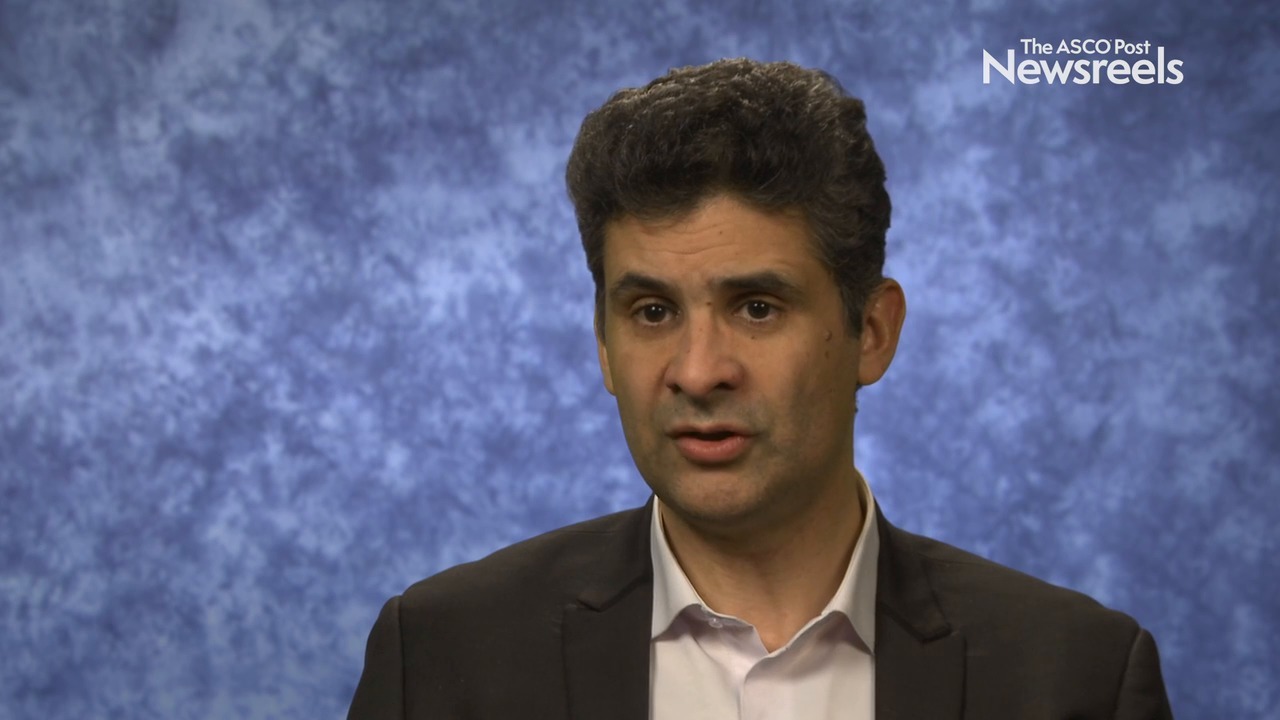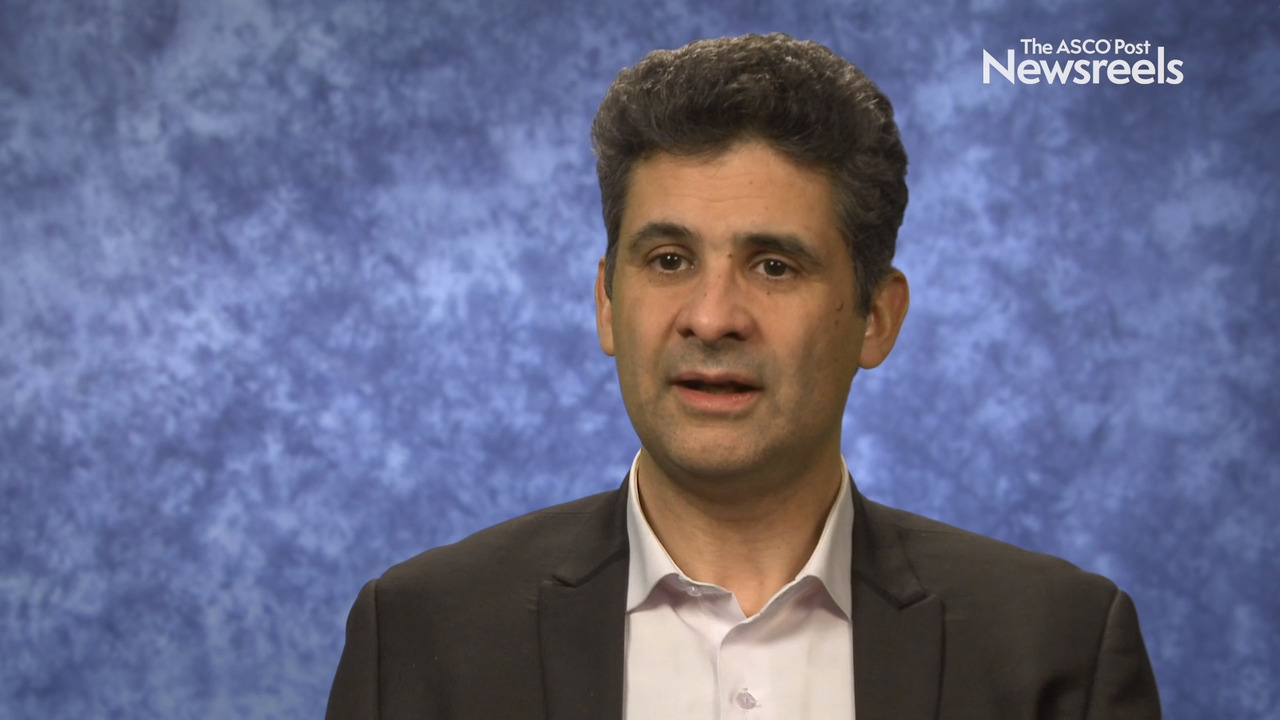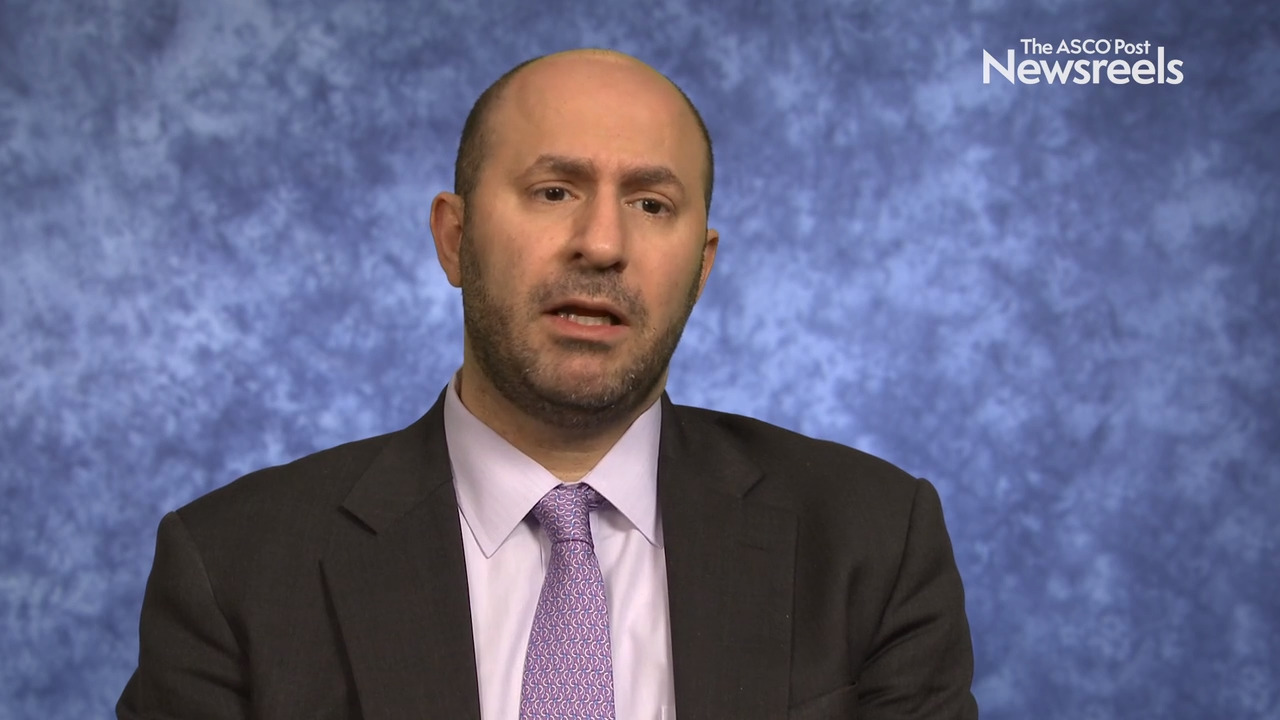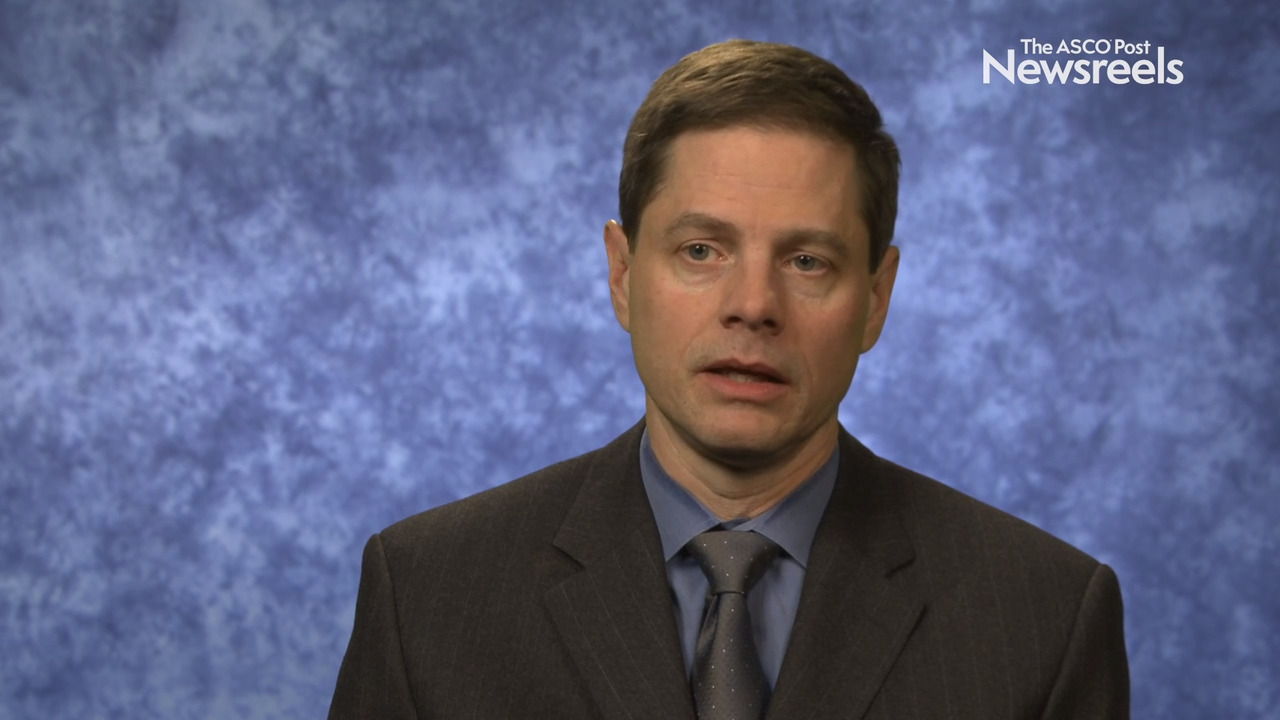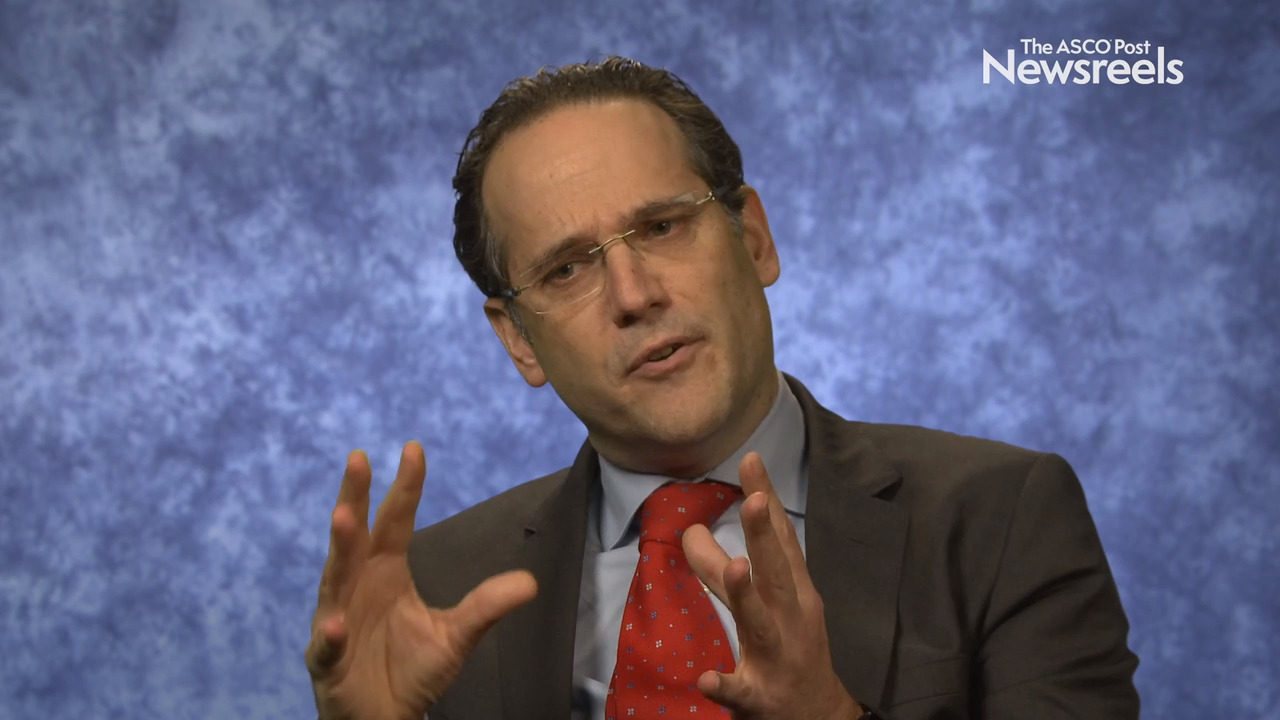Craig R. Nichols, MD, on Testicular Cancer Cases: Should They Be Discussed With High-Volume Centers?
2019 Genitourinary Cancers Symposium
Craig R. Nichols, MD, of the Testicular Cancer Commons and the SWOG Group Chair's Office, discusses the superior outcomes obtained at high-volume centers, the impracticality of referring all patients to such centers, and the international efforts to develop virtual collaborations on salvage management and post-chemotherapy surgery.
Karim Fizazi, MD, PhD, of the University of Paris-Sud and Gustave Roussy, discusses study findings on the efficacy and safety of darolutamide in men with nonmetastatic castration-resistant prostate cancer (Abstract 140).
Karim Fizazi, MD, PhD, of the University of Paris-Sud and Gustave Roussy, discusses final phase III findings on men with newly diagnosed, high-risk, metastatic, castration-naive prostate cancer who were treated with abiraterone acetate plus prednisone added to androgen-deprivation therapy (Abstract 141).
Toni K. Choueiri, MD, of Dana-Farber Cancer Institute, discusses a subgroup analysis from the JAVELIN Renal 101 study on outcomes for avelumab plus axitinib vs sunitinib in advanced renal cell carcinoma (Abstract 544).
Brian I. Rini, MD, of the Cleveland Clinic Taussig Cancer Institute, discusses phase III findings on a comparison of tivozanib and sorafenib in patients with refractory advanced renal cell carcinoma (Abstract 541).
Ignacio Duran, MD, PhD, of the Hospital Universitario Marqués de Valdecilla, discusses an overall survival analysis of the phase III METEOR trial of cabozantinib vs everolimus in advanced renal cell carcinoma (Abstract 550).
